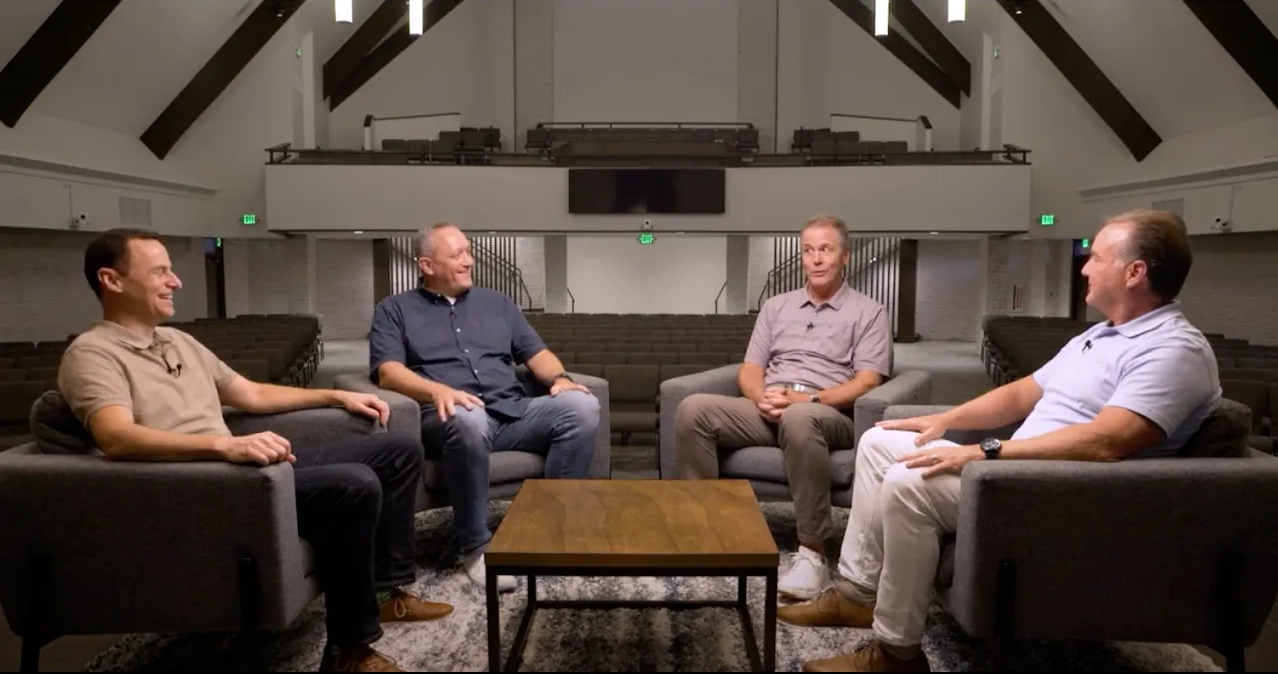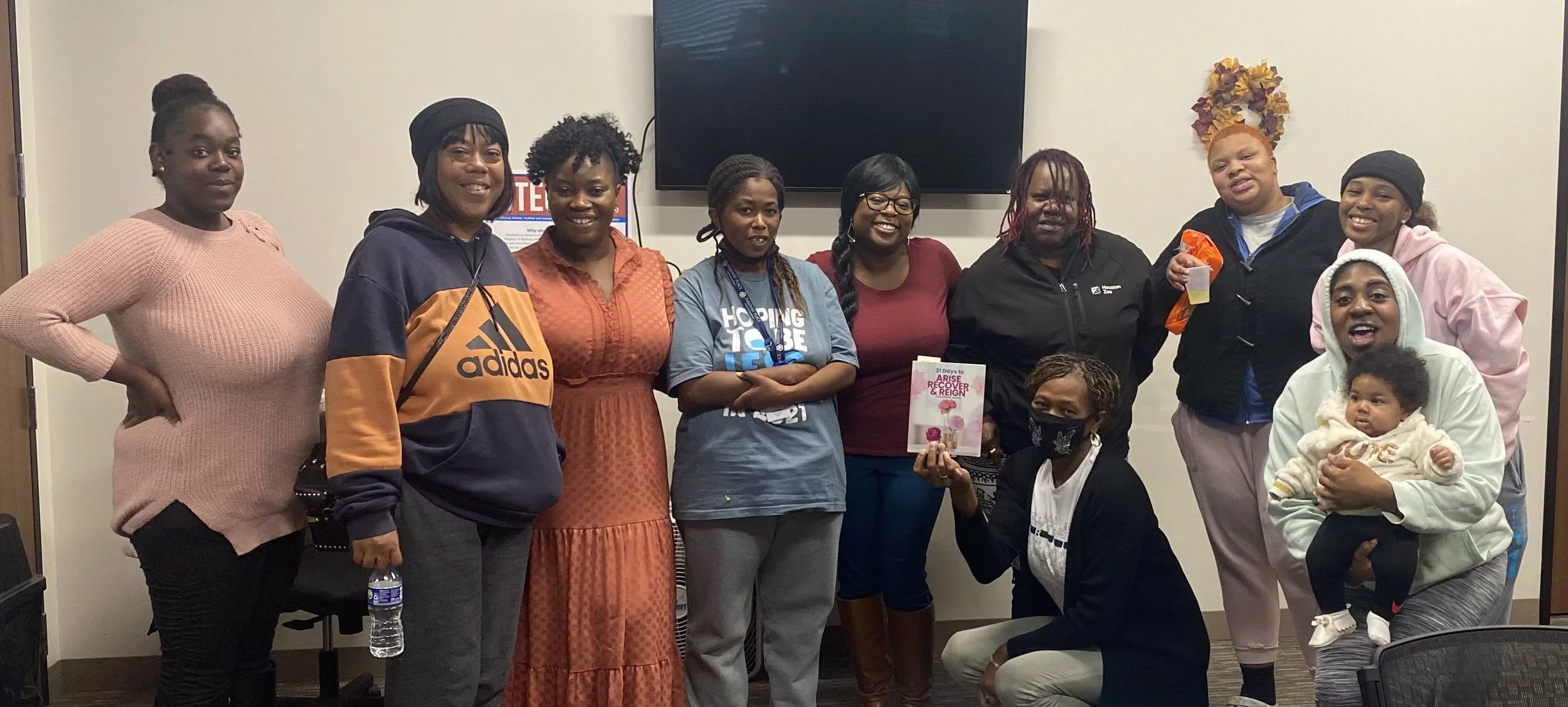There are a lot of embarrassing things about my senior pictures. Probably the most laughable was my choice of props at the time. In one particular picture, I am posed with a wide grin and the generic-brand guitar I had received for Christmas. In another, I smile uncomfortably with my marching band letterman and the trumpet I had played for seven years.
The scene is strange—as my friends liked to point out—because I could not actually play the guitar at the time. My older, significantly cooler brother played well, and I liked to think that I did, too. I wanted so badly to be cooler than the trumpet-playing band geek that I was. In actuality, though, my fingers still struggled to form a C chord.
To be fair, we all have different masks—or false selves—we put on, versions of ourself we wish were true. These identities can range the spectrum from helpful, to innocuous, or even detrimental to our spiritual health. Sure, there’s room to “fake it til you make it” in some circumstances. However, let’s take a moment to examine the dangerous false selves we present and how they might damage not only our walk with Christ but also our witness and community.
The false gospel and the false self
No matter how loud or how often we speak the gospel, if Christians don’t have a culture of honesty and integrity, the outside world will only hear us preaching the proverbial, “God helps those who help themselves.” Soon, people discover that they must either live exposed or adopt a false self—a “church face.” Most people choose the latter, and these false selves perpetuate the problem and distract from the gospel.
In order to fix the problem, we must remember that confession is essential to the Christian life—from beginning to end. Though it’s kind of exhausting to live as a perpetual sinner in need of grace, it’s reality. We must live in the truth of the “already” and “not yet” of redemption. That means we should never get over our continual need for God’s grace and power in us.
Confession and repentance are not only the on-road for salvation but also how we continue in Christian living. To walk in God’s light, we must own our sin, confess our sin, and receive forgiveness. If we hide our sin, we’re not walking in God’s way (1 John 1:5-10). The Bible reminds us several times that denying our sin shows the lack of God’s presence in our lives. It also promises we can find healing as we confess before our brothers and sisters and pray (James 5:16).
“It’s far more dangerous for your ministry if you’re completely unknown and unaccountable than if you’re known as a sinner in need of God’s grace.”
On the other hand, a lack of confession—or the fear of confession—shows we’re building ministries on our own works and reputation rather than God’s. I assure you, this is a foundation of quicksand. But—you may ask—what about leaders or mentors? Don’t they have a lot to lose in revealing their sin? Yes, and I understand the concern. I have also worried that new Christians in my circle of influence may walk away from the faith if they knew I was a sinner.
In reality, though, this fear puts my goodness at the center of someone else’s faith, and that’s just as dangerous for their soul. Yes, those in leadership should choose when and to whom to confess wisely, but it's far more dangerous for your ministry if you’re completely unknown and unaccountable than if you're known as a sinner in need of God’s grace. When we cannot accept that we and other people still sin on this side of Heaven, we’re losing the beauty and the power of the gospel.
Stigmas or shared burdens
Look at your own heart and church community. What do you think about those who battle mental health issues? What about the person in your Bible study who confesses an uncomfortable sin struggle to you? Does the hope of the gospel extend to them as well? Or do we shut them down by ignoring, overreacting, or excusing away the problem?
Yes, it is often a burden to bear these struggles with our brothers and sisters, but that’s what Christ calls us (and equips us) to do. In these conversations, especially if it’s the first time they’ve shared their burden with anyone, the way we explicitly or implicitly communicate our discomfort speaks volumes about what we believe. If we can’t point to Christ to help shoulder those burdens, we are effectively telling others they are beyond God’s salvation.
So, what do we do?
Vulnerability begins with you
Lead in humility
In a day and age where leadership seems to be about being heard and being right, we’d do well to remember how many times Scripture calls us—especially those who lead—to be humble. Jesus’ example in life was that of servant leadership, and that should be central to our leadership as well. When we hold up leaders as better than the average person, we unintentionally create a culture where church members and visitors feel they must live in the dark with their sins.
Value Honesty & Integrity
When someone confesses a sin or discusses a mental health issue in church community, are they met with grace or forever branded? As we create a culture of vulnerability, what would be one person’s stigma can become a shared burden. In so doing, the church can begin to really support one another and “fulfill the law of Christ.”
I’m not saying that church discipline isn’t important or that people shouldn’t be removed from leadership as they deal with obvious sin issues. Instead of detaching ourselves from struggling saints, though, we should remember that God’s grace is sufficient and value the courage and integrity it takes to be honest. Then, we deal with sin appropriately.
“When we speak of sin, let’s speak in the past and present tense so that we can speak of God’s past, present, and future redemption”
Speak out
Not everything can and should be shared with everyone, but everyone should have someone with whom they can share everything. Got it? In other words, maybe your pastors don’t need to share everything from the pulpit, but all leaders need to be accountable.
When we speak of sin, let’s speak in the past and present tense so that we can speak of God’s past, present, and future redemption. That means our testimony doesn’t end with a decision to follow Christ. It continues to display the Spirit’s power to defeat the sin we struggle with on a daily basis. Let’s be brave, like Paul, boldly pointing to Christ and declaring:
“Wretched man that I am! Who will deliver me from this body of death? Thanks be to God through Jesus Christ our Lord!” Romans 7:24-25
Confess, repent, and trust Christ
As we embrace a life of confession, we should make space for people to deal with their sin and not be surprised when those we look up to turn out to need God’s grace as well. Holding ourselves or other people up on a pedestal of perfection keeps us from seeing the only perfect Son of Man.
So, let’s remember the gospel—preaching it to ourselves and to others in the messiness of every day. Instead of vaguely smiling with our guitar in senior pictures, let’s learn to play it for real. Our communities will be better for it.
Marie Burrus is UBA's Communications Specialist. She manages, edits, and contributes content for UBA's blog, website, and social media outlets. Marie uses her Master's degree in Intercultural Studies and experience as a missionary in Burkina Faso to write on missions, outreach, culture, and the Christian life.











